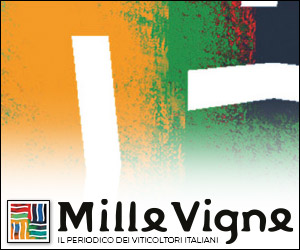Lorenzo Biscontin
In recent months, Wine Job, a personnel training and research agency specialized in the wine sector, carried out a survey aimed at understanding the dynamics of the labor market in the Italian wineries.
The results were analyzed with the support of game2value, an agency who created assessment games that bring gamification into the personnel selection process, and were presented in a webinar last week.
The research provides the first structured picture of staff mobility in the wine sector and the factors that lead people to stay and work in a company or seek new opportunities.
523 people responded to the questionnaire, 78% of whom already work in the wine sector while the remaining 22% aspire to do so.
The majority of those who responded to the questionnaire were managers/executives (45%), followed by employees (35%), consultants (11%), currently unemployed (6%) and blue collar workers (4%).
The first extremely interesting fact revealed by the analysis is the high dynamism of the job market in the wine sector: 75% of those interviewed have received a job offer over the last 24 months and 40% have actually changed company.
These are much higher figures than the average for the manufacturing sector, lower only than the technological sector, which is structurally subject to high staff turnover due to its high level of innovation.
The interpretation given by Andrea Pecchioni, owner of Wine Job, is that of a “closed” job market within the sector, in which wineries tend to hire people who already know its characteristics and dynamics because they work in competing companies. Gianmarco Pinto, founder of game2value, defined it as a “plug & play” logic, that is, hiring people who can be readily operational when they arrive at the new company.
It is an operationally simple approach in terms of personnel research and selection, but expensive for the company since the change from one cellar to another almost always implies a salary improvement.
Doubly expensive in light of the high mobility, since the introduction of a new person into the organization requires a training investment, even just in terms of time. An investment that is lost when the person leaves the company, especially if they do so quickly.
It therefore seems necessary for wineries to invest not only in finding new staff, but also in retaining them once attracted. The latter in fact appears to be a particularly critical factor considering that 60% of those interviewed who changed jobs over the last 24 months personally took action to look for the new job and only 25% were looked for (the 100% complement concerns those who followed their manager to a new company and those who changed jobs not by choice).
So, what are the reasons why people who work in a winery are looking for a new job?
The first factor is the lack of professional growth prospects and the second the management style which created an uncomfortable working environment, with little attention to people in general and little consideration of one’s role in particular.
Interestingly, salary level does not appear among the top 10 factors that push people to look for a new job. As Gianmarco Pinto summarized well, “People don’t change jobs for the salary, they look for a salary improvement” (when they have decided to change).
In fact, the role offered in terms of operational autonomy and position on the organizational chart is the first factor in choosing the new company to work for, followed by the salary and the impression one got of the company during the selection interviews. The latter is a crucial moment for attracting talent because it is the moment in which the hiring candidate compares the reputation of the winery based on the information circulating in the sector with his direct experience of the organization.
In this direct experience, it is above all important to perceive that the new company you are joining has a clear vision of the future of the person it is hiring and of the organization as a whole. It is no coincidence that Andrea Pecchioni underlined how important in the Wine Job experience is that the selection process is conducted in a professional and structured way.
After attracting talent, what can you do to retain them?
The reasons for staying cited with a score higher than 8/10 by the 60% of interviewees who remained in the same company in the last 24 months were in order:
– The honesty and ethics of the management
– The serenity of the working environment
– Consideration of one’s role by superiors
– The quality of the relationship with your superior
– The level of decision-making and operational autonomy
– The feeling of continuous professional growth
– The clarity of the vision and company strategies
– The economic stability of the company
– The competitiveness of the contract
– Career prospects
As we can see, once again, the importance of the salary is relative compared to many other elements that determine the creation of a poise and stimulating work environment.
In summary, a very interesting research, which clarifies various aspects of the behavior and motivations of winery employees, calling into question some certainties and confirming an old rule: people decide to go to work in a specific winery because of the company and decide to leave for their manager.



